Meet the Team

Meet our 2024-2025 team!
Top Row:
Stephen Toepp, Amandeep Atwal, Mary Ann Ingrid Sader, Dr. Aimee Nelson, Ava Bobinski, Malaikah Ahmed, Stevie Foglia
Bottom Row:
Daniel Soppitt, Ameer Hamoodi, Chloe Drapeau, Jiyeon Park, Karishma Ramdeo, Faith Adams, Mustaali Hussain.
Profiles

Dr. Aimee
Nelson
I received my PhD from the Institute of Medical Sciences at the University of Toronto in 2003 in the field of human neurophysiology and neuroimaging with funding from NSERC. I was a Postdoctoral Associate in the McGovern Center for Brain, MIT from 2003-2005, where I advanced the technique of high-field (9.4T) monkey imaging. In 2005, I became a CIHR-funded Postdoctoral Fellow at the Toronto Western Research Institute where I continued to advance my neurophysiology and imaging techniques with studies in individuals with movement disorders. In 2008, I joined the Department of Kinesiology at the University of Waterloo as Assistant Professor. I came to the Department of Kinesiology at McMaster University in 2012 as a Tier 2 Canada Research Chair in Sensorimotor control, and in 2014 became Associate Professor. I am a member of the Southern Ontario Neuroscience Association, the Canadian Association of Neuroscience and the Society for Neuroscience. I am also an Associate Member of the Department of Biomedical Engineering at McMaster University and Associate Member of the Department of Kinesiology at the University of Waterloo.
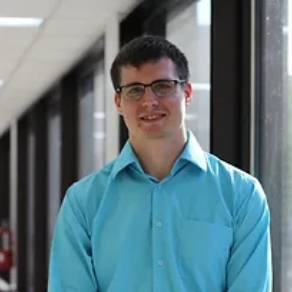
Stephen
Toepp
Research Interests: Recovering function for individuals who live with the consequences of neurological injury or neurodegenerative disease means leveraging the nervous system’s consideral capacity for plasticity. High amounts of movment re-training are needed to stimulate adaptation and take advantage or this potential. I use electromyography and other electrophysiology techniques to better understand how the efficiency of moment training can be optimized in order to the fully realize each patient’s potential for recovery.
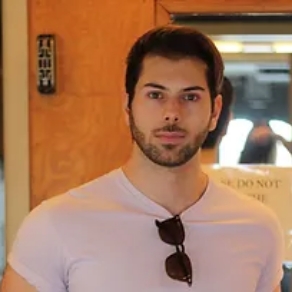
Stevie
Foglia
I am currently a third year PhD Candidate in the School of Biomedical Engineering at McMaster University working in Dr. Aimee Nelson’s Neurophysiology and Imaging Lab. The goal of my research is to provide new insights into the neurophysiological mechanisms that underly chronic pain conditions including neuropathic pain, complex regional pain syndrome, and chronic neck pain. My work also focuses on implementing novel treatment strategies that target the neurophysiological changes observed in these conditions. I utilize neurophysiological techniques including non-invasive brain stimulation, electroencephalography, peripheral nerve stimulation, and brain computer interface technology to facilitate my work.
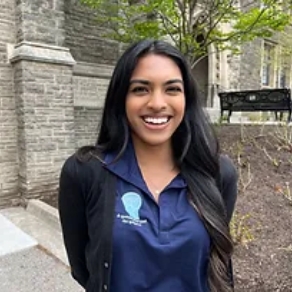
Karishma
Ramdeo
I am currently a PhD Candidate in the Department of Kinesiology at McMaster University working in Dr. Aimee Nelson’s Neurophysiology and Imaging Lab. The goal of my research is to explore the various factors that influence the neurophysiological mechanisms that underly neuroplasticity with the aim to support clinical populations that show deficits in synaptic plasticity. My work aims to determine whether exercise can improve cognition by enhancing synaptic plasticity in individuals with mild cognitive impairment and in aging individuals. This work explores the effects of exercise on rTMS protocols (iTBS and 5Hz rTMS), neurotrophins (BDNF &OCN), and cognition. In addition, I am interested in the effects of ketogenic supplementation on human neurophysiology. Currently, I work with neurophysiological techniques such as non-invasive brain stimulation (TMS,rTMS & cTMS), electroencephalography, electromyography, and peripheral nerve stimulation.
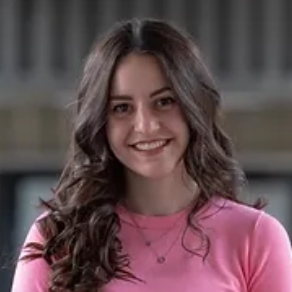
Faith
Adams
Research Interest: I am currently a first-year PhD Student in the Department of Kinesiology at McMaster University working in Dr. Aimee Nelson’s Neurophysiology and Imaging Lab. The goal of my research is to explore the various factors that influence the neurophysiological mechanisms that underly neuroplasticity. My current work examines the ‘gut-brain axis’ and how probiotics may modulate brain activity. I work with neurophysiological techniques such as non-invasive brain stimulation (TMS, rTMS, cTMS), electroencephalography, electromyography, and peripheral nerve stimulation.

Marc
Cuizon
My research interests include neurophysiology and neuroimaging and how certain factors can affect an individual’s motor cortical representation. My current study aims to explore the differences in motor cortical representation in right and left-handed individuals and how ipsilateral contractions can affect their motor cortical representation. With this research, I aim to further understand the mechanisms of laterality in the brain and ipsilateral hemispheric control. The purpose of this work is to extrapolate it to clinical populations and further research.

Chloe
Drapeau
I am a second-year Master’s student in Dr. Aimee Nelson’s Neurophysiology and Imaging Lab with an interest in chronic pain, specifically fibromyalgia. My research uses non-invasive brain stimulation (transcranial magnetic stimulation), electromyography, and encephalography to investigate neurophysiological measures in chronic pain conditions. The aim of my research is to understand fibromyalgia and explore strategies to alleviate pain perception and the burdens of chronic pain.

Ava
Bobinski
I am currently a second-year master’s student in the Department of Kinesiology at McMaster University. My research interests include using medical devices such as electromyography to gain a better understanding of how they can be used to improve the motor function of individuals who are living with neurodegenerative diseases such as multiple sclerosis (MS). My goal is to examine observed changes in motor function using a non-invasive treatment approach that can be implemented in a clinical setting.

Jiyeon
Park
My research interests lie in enhancing the well-being of individuals by understanding neurophysiology and reducing pain through non-invasive techniques such as transcranial magnetic stimulation (TMS). My research focuses on assessing the effects of controlled pulse parameter TMS (cTMS) on individuals with painful diabetic neuropathy. Pain symptoms, neurophysiology and somatosensory function will be measured to investigate the effects of cTMS intervention. I am also interested in other neurophysiological techniques and their effect in mediating pain.
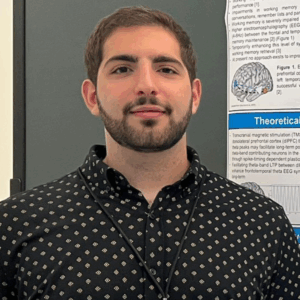
Ameer
Hamoodi

Malaikah
Ahmad
I am currently a first-year master’s student in the Department of Kinesiology at McMaster University in Dr. Aimee Nelson’s Neurophysiology & Imaging Lab. My research uses transcranial magnetic stimulation, a form of non-invasive brain stimulation, to investigate how probiotics modulate brain activity and interact with the ‘microbiota gut-brain axis’ during different phases of the menstrual cycle. With this research, I aim to further investigate the potentiality of probiotics and the gut-brain axis in a variety of women’s health aspects.

Daniel
Soppitt
I am a first-year M.Sc. Kinesiology student working in Dr. Aimee Nelson’s Human Neurophysiology and Imaging Lab at McMaster University. My research focuses on the clinical application of a non-invasive neuromodulatory technique called transcranial magnetic stimulation (TMS). Specifically, I am using TMS to investigate the mechanisms underlying symptoms of mild traumatic brain injury (mTBI). Additionally, my work explores the potential of repetitive TMS as a treatment for mTBI symptoms. Besides TMS, I employ techniques such as electroencephalography and electromyography in my research. Through this research, I aim to contribute to the development of innovative strategies for managing mTBI symptoms.

Amandeep
Atwal
I am currently a first year Kinesiology Masters student working under Dr. Aimee Nelson. My goals are to better understand how neuropathic pain presents in the brain, and to use non-invasive brain stimulation techniques to reduce experienced pain. My research will be using imaging devices like Electroencephalography (EEG) to guide and personalize the use of stimulation devices such as repetitive Transcranial Magnetic Stimulation (rTMS) to investigate biomarkers of neuropathic pain.

Mustaali
Hussain
I am a first-year MSc student within Dr. Aimee Nelson’s Neurophysiology and Imaging Lab, working to better understand neurophysiological mechanisms underlying motor control as well as pain. Specifically, I am currently investigating the relationship between handedness and ipsilateral motor cortical organization through the use of transcranial magnetic stimulation. With my research, I aim to provide new insights into the neural basis of motor control and lateralization, which may augment future research and rehabilitative approaches for certain motor impairments.
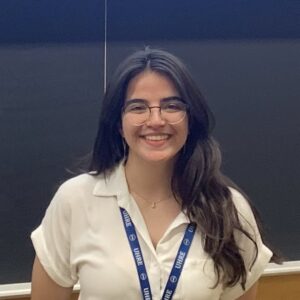
Mary Ann Ingrid
Sader
I am a first-year master’s student in Dr. Aimee Nelson’s Neurophysiology and Imaging Lab with the Department of Kinesiology at McMaster University. My research focuses on improving quality of life in individuals with neurodegenerative diseases through the use of integrated dual-task EMG biofeedback training. In addition, I am interested in exploring different rTMS protocols and their impact on synaptic plasticity as well as their applications in clinical settings.
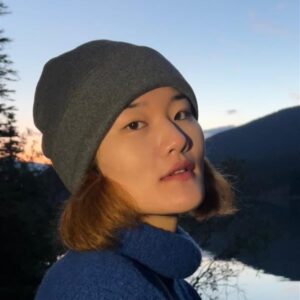
Xiru
Wang
I am a first-year PhD student in the Department of Kinesiology at McMaster University, working in Dr. Aimee Nelson’s Neurophysiology and Imaging Lab. My research focuses on integrating Artificial Intelligence with neurophysiology to address complex challenges in clinical neuroscience. Specifically, I investigate digital biomarkers for neurological conditions by combining advanced neurophysiological techniques such as non-invasive brain stimulation (TMS, rTMS, cTMS), electroencephalography (EEG), and electromyography (EMG) with machine learning and data-driven modelling. My goal is to develop more accurate, personalized, and scalable tools to support diagnosis, treatment monitoring, and decision-making in clinical settings.
Former Students
Former Trainees
Ravjot R. Rehsi (MSc.)
Jacob W. Pickersgill (MSc.)
Claudia V. Turco (PhD.)
Michael Asmussen (PhD.)
Aaron Z. Bailey (MSc.)
Jenin El-Sayes (MSc)
Hunter Fassett (MSc.)
Diana Harasym (MEng.)
Patrick Dans(MSc.)
Christina Jones (MSc.)
Kevin GH Lee (MSc.)
Mitchell Locke (MSc.)
Tanner Mackenzie (MSc.)
Peter Mi (MSc.)
Azra Premji (MSc.)
Mark Jacobs (MSc.)
Navjot Rai (MSc.)
Mitchell Savoie (MSc.)
Nicholas Simard (MEng.)
Philemon Tsang (MSc.)
Christopher Zapallow (MSc.)
Stephen Toepp (MSc, PhD)
Fattenah Faramand (Postdoctoral Fellow)
Chiara Nicolini (Postdoctoral Fellow)
Angela Ziluk (MSc.)